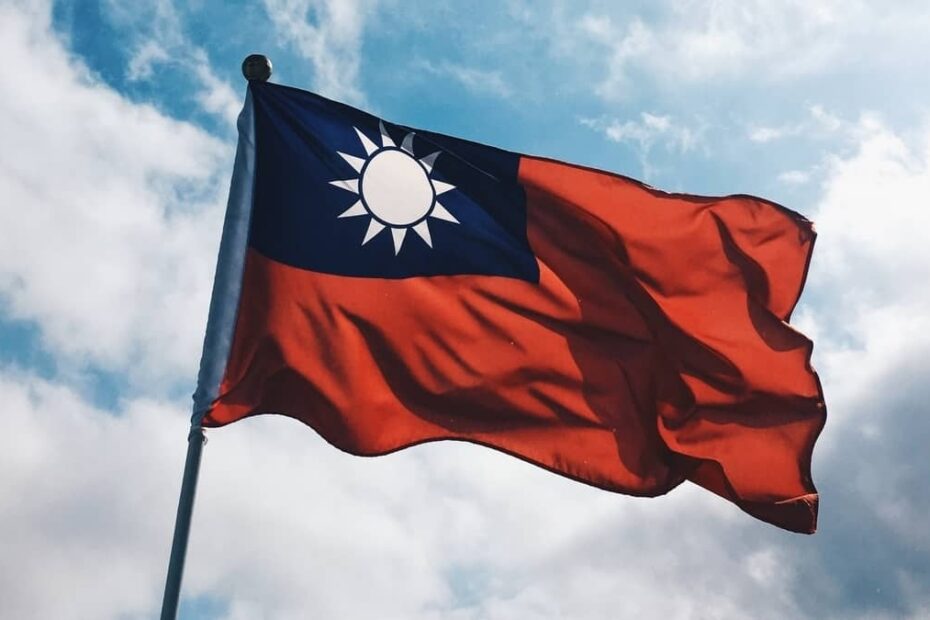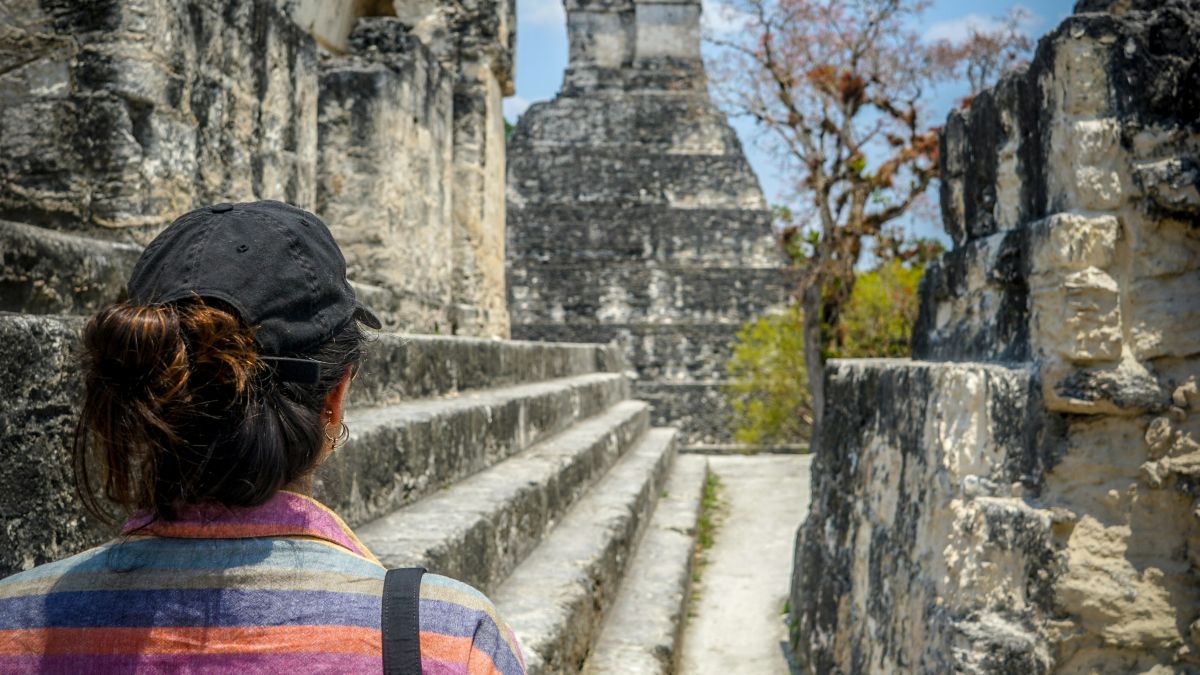The story of Taiwan in Central America isn’t a happy one. As Nicaragua renounces its recognition of Taiwan, it’s important to note it’s not the only Central American country to do this. Here’s a quick recap.
It might come as a surprise that Nicaragua hadn’t declared it no longer recognized Taiwan earlier. After all, the practice of denouncing Taiwan in favor of China is well established in Central America.
Plus, you’d think a country like Nicaragua would have jumped onto the China train a long time ago. After all, they’re both one-party, authoritarian dictatorships. And one-party, authoritarian dictatorships like sticking together.
Indeed, back in 2005, Ortega said he would switch Nicaragua’s allegiances from Taiwan to China. When he came into power in 2007, though, he never followed up on it.
EXPLAINER: Nicaragua’s decision to sever diplomatic links with Taiwan and recognize China leaves the self-governing island democracy with just 14 diplomatic allies. What’s behind Nicaragua’s decision to switch ties? https://t.co/89lXou07si
— The Associated Press (@AP) December 10, 2021
It was only yesterday that undemocratic Nicaragua finally abandoned democratic Taiwan.
In a declaration, Nicaragua’s Minister of Foreign Affairs Denis Moncada said his country only recognized one single China, and that the People’s Republic of China is the only legitimate government representing all of China, and that Taiwan is “an inalienable part of the Chinese territory“.
He went on to state that Nicaragua is breaking diplomatic relations with Taiwan and that it would no longer maintain any contact or official relationship.
This to a country that has all but propped up the Ortega dictatorship for years, with millions of dollars worth of aid and donations. Talk about gratitude.
In a way, Nicaragua’s abandonment is a good thing for Taiwan.
Taiwan had no business supporting Nicaragua for so long. It has a cynical policy of getting into bed with anyone who agrees they exist, no matter how evil they are.
They’ve thrown money, aid, and donations to despots all the developing world over the years, without a thought to the human rights abuses said despots carry out.
Yesterday, President Tsai Ing-wen of Taiwan lamented Nicaragua’s decision on Twitter, while at the same time talking about her country’s commitment to freedom, human rights, and the rule of law. You couldn’t make up a more confused and contradictory tweet if you tried.
Perhaps in the future Taiwan will try to buy off a better class of friend than the Ortega/Murillo regime. They were always going to throw them under the bus at some point. It’s surprising it took this long for them to do so.
Earlier today, #Nicaragua ended diplomatic ties with #Taiwan. I would like to stress that no amount of external pressure can shake our commitment to freedom, human rights, the rule of law & to partnering with the international democratic community as a force for good.
— 蔡英文 Tsai Ing-wen (@iingwen) December 10, 2021
So why do countries like Nicaragua stop recognizing Taiwan after so much aid and assistance?
The answer is simple. Pressure and promises from China. For years, as Taiwan has been throwing money around the developing world trying to buy recognition for itself, China has been doing the exact same thing to make the reverse happen.
China has made a policy of promising the world to countries in the form of aid as long as they renounce recognition of Taiwan. That’s one of it’s conditions.
And so, poor, small countries comply. China’s far more powerful than Taiwan and they don’t want their wrath. They tell Taiwan “thanks for everything but now you can eff off.”
So what has China promised Nicaragua? The world, I suppose. The Ortega regime has finally found a more suitable bedfellow in the Xi regime.
There’s been talk for years about a Chinese-built Nicaragua canal to rival the Panama Canal. This canal was widely-ridiculed, and went nowhere when a private consortium, HKND, partnered up with Ortega to build it.
But when the businessman behind HKND lost a lot of his money in the Chinese stock market crash of 2015, the whole thing fizzled out. The Ortegas stole a bunch of land, made a few more million, and that was that.
Now though, perhaps this thing could be back on, with the full power of the Chinese state behind it. Who knows?
In the short term, Ortega will receive the funds he needs to keep his regime alive in the face of U.S. sanctions. Survival is Ortega’s only aim right now.
However, it’s important to note that Nicaragua is not the only country in Central America to renounce Taiwan like this.
Ortega may be a vile, corrupt dictator, but he’s no way the first to treat Taiwan like this. As much as it’s easy to criticize his regime for this move, it’s no different from any of the more democratic countries in Central America.
What if the Panama Canal had gone through Nicaragua like originally planned? So many questions about how that would have changed Central America. https://t.co/rCRvQummFK #Nicaragua #PanamaCanal #NicaraguaCanal #Panama #CentralAmericanTwitter pic.twitter.com/2zl7aTAieZ
— CentralAmericaLiving (@VidaAmerica) November 17, 2017
Countries like Costa Rica, for example.
In June 2007, Costa Rica became the first Central American country to cut ties with Taiwan. At the time, President Oscar Arias said it was for pure pragmatic reasons, given how China was the second most powerful country in the world, after the United States.
“This decision is not the consequence of an ideological turnaround, or of geopolitical reasons or short term interests,” said Arias at the time. “It is an act of elemental realism, an awakening to the global context we are forced to deal with.”
Arias went on to thank Taiwan for its generosity and support over the previous 60 years. Thanks but no thanks.
Part of that generosity was the construction of the Taiwan-Costa Rica Friendship Bridge across the River Tempisque. Completed in 2003, with Taiwanese funding and design, using Costa Rican workers, this bridge cut short by hours the journey to the northern Nicoya Peninsula from the mainland.
It must have been pretty sickening to Taiwan when four years later, Costa Rica said sayonara and changed the name of the bridge to simply “the Friendship Bridge”. Those in the know call it the “Backstab Bridge”.
“This is not something that a country which stands for peace and democracy should do, cut ties with its partner of 60 years,” said Taiwanese Foreign Minister James Huang, who ended up resigning over the affair.
For its part, China gave Costa Rica a new national stadium (built far smaller than promised, and using no Costa Rican workers at all) in exchange for dumping Taiwan.
Costa Rica’s Tempisque Bridge.
Fun fact: Donated by Taiwan, this used to be called the CR-Taiwan Friendship Bridge. Then CR withdrew its recognition of Taiwan under Chinese pressure, and got a new stadium as part of the deal. #geopolitics pic.twitter.com/yW8Ar4a65g
— CentralAmericaLiving (@VidaAmerica) May 1, 2021
Panama dumped Taiwan in June 2017, ten years after Costa Rica.
Then-President Juan Carlos Verala of Panama, who had hosted Taiwan’s president the previous year, called Panama’s relationship with Taiwan “a situation that a responsible president could not continue to perpetuate.”
Panama’s official break up note read pretty much word for word the same as Nicaragua’s did yesterday:
“The government of the republic of Panama recognizes that there is but one China in the world, that the government of the People’s Republic of China is the sole legal government representing the whole of China, and that Taiwan is an inalienable part of China’s territory.”
You’d think there was a template or something.
In justifying his renouncement of Taiwan, Verala spoke of China being the second most important user of the Panama Canal, and the main supplier of goods sold in the Colón Free Trade Zone.
China would have threatened to withhold both ships and goods if Panama hadn’t renounced Taiwan.
After renouncing Taiwan, Panama and China went into overdrive together, announcing a string of infrastructure projects. U.S. pressure upon Verala’s successor, Nito Cortizo, meant many of these ended up getting cancelled or scaled back.
One of these projects was a Chinese idea to put its embassy on Ancon Hill at the Pacific entrance to the canal, where ships would see the Chinese flag before the Panamanian flag. Audacious much?
But still, although Chinese influence has diminished somewhat, it’s still a major player in the Canal, and it won’t let Panama forget it. Ever.
Another one bites the dust.
Three years ago when the Chinese thought they could spend their way into Panamanian hearts the crazy Nica canal project was put on the back burner.
Now Washington has clamped down in Panama, I bet that crazy canal gets built https://t.co/W9s52Gw9Ms
— Mat Youkee (@matyoukee) December 9, 2021
And then there’s El Salvador.
In what’s looking like a repetition of the same old story, El Salvador cut ties with Taiwan in August 2018. Then-president Salvador Sanchez went on TV to tell Salvadorans the Taiwanese were no longer their friends.
The Taiwanese, for their part, were a little more prepared this time than they were with Costa Rica and Panama.
They hit back by severing relations with El Salvador before it signed its friendship deal with China. Then they accused El Salvador of badgering Taiwan for money to build a port that wasn’t feasible.
President Nayib Bukele, who came into power after Sanchez has talked of reopening relations with Taiwan, and he’s accused China in the past of meddling too much in Latin American politics.
But since then, like Costa Rica and Panama before it, El Salvador signed an infrastructure deal with China. In return for ditching Taiwan, El Salvador is set to receive a new stadium (like Costa Rica did) and other “goodies”.
El Salvador’s president on China in March: “China does not play by the rules… They are not a democracy, but they intervene in your democracy.”
Today he’s touting a new stadium, water plant & one of the “best libraries in Latin America.” https://t.co/xqhdnjK6oI
— Julia Love (@byJuliaLove) December 3, 2019
At the turn of the millennium, all seven countries in Central America recognized Taiwan and shared diplomatic relations with it.
Now, only three remain.
So far, Belize, Guatemala, and Honduras still maintain relations with Taiwan, but how long will that last?
The new president-elect of Honduras, Xiamara Castro, has already spoken about ditching Taiwan when she takes office next month. Whether that happens immediately or not, is unknown.
She’s walked back some of her anti-Taiwan sentiment in recent days, and even thanked President Tsai Ing-wen for congratulating her on her victory.
That might not mean much, but recognizing that Taiwan has a president means recognizing that it’s an independent country. This is an anathema to China, who demands countries renounce that recognition.
Taiwan has already warned Honduras to not fall for Beijing’s “flashy promises”.
Muchas gracias Presidenta Tsai ing-wen. https://t.co/yNszHTv3fb
— Xiomara Castro de Zelaya (@XiomaraCastroZ) December 1, 2021
And as for Guatemala and Belize, who knows? Chinese pressure and promises are a lot for small, poor countries to bear.
But last month, Belize reaffirmed its commitment to Taiwan.
“Belize remains steadfast in its support of Taiwan and we stand in solidarity with you,” said Belize’s House of Representatives Speaker Valerie Woods on a visit to Tapei.
And this week, Guatemalan president Alejandro Giammattei used Taiwan to bolster his country’s position in the eyes of the United States.
“We consider ourselves an ally and friend (of the United States), although some officials in this government don’t understand this in its true dimension,” he said.
“I’ll mention a couple of things that prove it: First, diplomatic relations with Taiwan, not China. We’re the last ones left in the region.”
Indeed they are, but for how long?
James Dyde is the editor of centralamerica.com. He lives in Escazu, Costa Rica.




